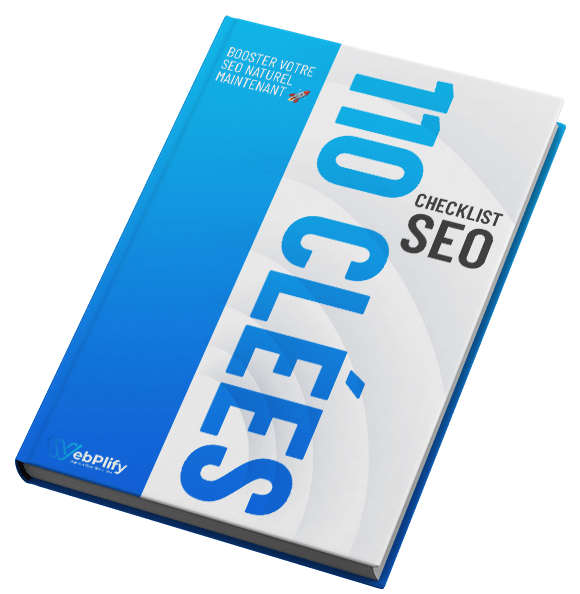Is your online presence stagnating despite your best efforts? An SEO agency can be the solution to this challenge. Specialized in search engine optimization, they help companies improve their visibility on Google and attract qualified traffic to their website. SEO experts implement customized strategies that boost your positioning in search results, increasing your chances of conversion. Definition and role of an SEO agency What is an SEO agency and why is it important? An SEO agency specializes in optimizing websites for search engines. Its mission is to improve companies’ online visibility by working on their natural search engine optimization. To understand in detail what SEO is and how to optimize it, consult our complete guide. These experts analyze and transform sites so that they meet Google’s requirements and attract a qualified audience. The importance of SEO for a company cannot be underestimated in today’s digital environment. According to siecledigital.fr, Search Engine Optimization (SEO) is 5.66 times more effective than Search Engine Advertising (SEA). A well-executed SEO strategy generates quality traffic to your site, turning visitors into potential customers. Given that 92.96% of the world’s traffic comes from Google and its services, appearing high in the results is crucial for growth. The difference between an SEO agency and other marketing services Unlike freelance consultants or generalist agencies, SEO agencies focus their expertise exclusively on search engine optimization. This specialization enables them to master the subtleties of algorithms and keep abreast of the many developments in the sector. Comparison of digital marketing service providers Type of service provider Advantages Disadvantages SEO Agency Multidisciplinary expertise Access to advanced SEO tools Ability to manage complex projects Offers a full range of services (SEO, PPC, social media, content marketing, etc.) Higher costs than a freelancer Freelance SEO Generally lower rates Direct relations and personalized communication Tailor-made solutions for specific needs Limited resources Specialized but less diversified expertise Less ability to manage complex projects General Web Agency Offers a variety of web services Less specialized in SEO than SEO agencies SEA Agency Expertise in paid advertising Quick results Requires a constant advertising budget Results dependent on advertising expenditure Legend: This table compares SEO agencies, freelance SEO consultants, general web agencies and SEA agencies according to their respective advantages and disadvantages. SEO fits perfectly into an overall marketing strategy. While paid search brings immediate but temporary results, natural search builds lasting visibility. Social media promote engagement, and content marketing feeds the SEO strategy with relevant content. SEO agencies often work in harmony with other digital marketing specialists to maximize the impact of their work on a brand’s online presence. SEO agency services SEO audit and technical analysis The SEO audit is an important starting point for any SEO strategy. This comprehensive analysis identifies technical problems and reveals opportunities for improvement to optimize a website’s visibility. During a technical audit, the SEO agency carefully examines several critical elements that affect ranking. Page loading speed is scrutinized as it affects user experience and ranking. Site structure, HTML markup and mobile compatibility are also analyzed. Google values sites that demonstrate detailed expertise on specific subjects, hence the importance of well thought-out web architecture. Content indexability also plays a decisive role in facilitating the work of search engine crawlers and improving ranking in the results. Keyword strategy and on-page optimization An SEO agency carries out in-depth keyword research tailored to the customer’s sector of activity. By analyzing search volume and competition for each term, it identifies the most promising opportunities. This stage also takes into account users’ search intent to ensure that the traffic generated is qualified and relevant. On-page optimization encompasses all modifications made directly on the website. This includes optimizing the title and meta description tags that appear in search results. The agency also structures URLs logically and works on the hierarchy of titles (H1, H2, H3). Textual content is enriched with strategic keywords, while images are optimized with relevant alt attributes. These technical adjustments enable search engines to better understand and value content. SEO-optimized content creation Here are the different types of content that an SEO agency can create or improve to boost a website’s SEO, each with its own specificities and contributing to a complete SEO strategy. Optimized blog posts: Creation of relevant, informative blog posts, naturally integrating strategic keywords to improve search rankings and attract qualified traffic. These articles must answer readers’ questions and deal with optimized themes. Service or product pages: Optimization of pages presenting the company’s offerings, highlighting the benefits for the user and using clear, precise language, so as to increase conversion rates and improve the user experience. These pages must also be technically optimized. Guides and tutorials: Creation of comprehensive guides and detailed tutorials on specific topics related to the company’s business, demonstrating the brand’s expertise and generating leads by providing valuable content. These guides should be original and regularly updated. Infographics: Design attractive and informative infographics, presenting data and statistics in a visual way, to facilitate understanding and sharing on social networks, thus increasing visibility and traffic to the website. Infographics must be of high quality and optimized for SEO. Videos: Production of engaging, SEO-optimized videos on topics relevant to the target audience, to improve time spent on the website and attract qualified traffic from video platforms like YouTube. Videos must comply with Google guidelines. The creation of quality content is necessary to meet user expectations while satisfying the algorithms. Relevant content that answers web users’ questions while naturally integrating strategic keywords can significantly improve positioning in search results. Advanced content marketing techniques such as pillar content and clustering are transforming the approach to web content. For an optimized content strategy, discover our ultimate guide to the SEO semantic cocoon. These methods create an ecosystem of interconnected pages that reinforce the thematic authority of the site. Clustering involves organizing content into coherent thematic groups, facilitating user navigation and helping search engines to understand the site’s structure. This semantic approach improves overall visibility and strengthens the site’s credibility in its areas

















